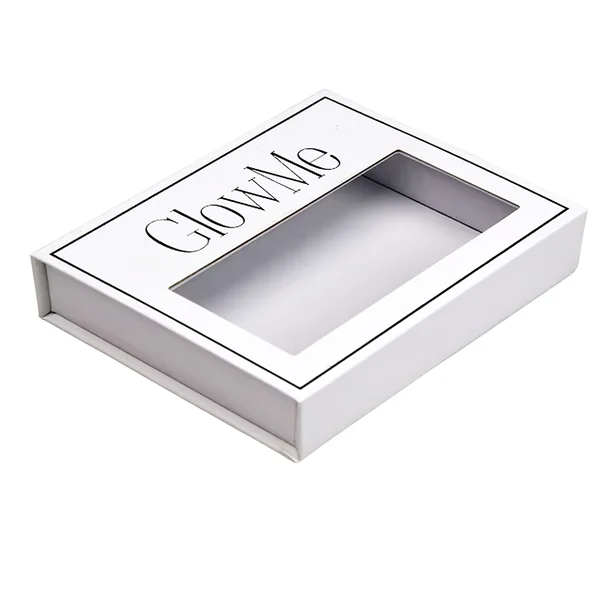Skincare Boxes
Products that come in use for the protection of human skin have several components that can go bad if one does not cater to them properly. Skincare boxes look after all such requirements in the best possible way and offer a wholesome packaging solution for skincare items. Different types, thicknesses, and styles of cardboard come in use to make such types of packaging. There is practically no limit to how one can design and style such boxes. Premium finishes and protective laminations enhance their aesthetic appeal and functionality side by side. They are the most essential part of the skincare industry and their presence is undeniable.
Skincare boxes come with various attributes and characteristics that set them apart from other packaging solutions. Although they do belong to the cardboard packaging industry, the addition of certain features and elements marks them as capable of holding skincare items in the best way possible. Let us give you a detailed overview of boxes for skincare items.
Attributes of skincare boxes
The prime attribute of skincare packaging is its ability to tailor to the exact brand’s aesthetics. They can house various elements like color schemes, logos, and graphics to mirror the brand identity. Since we manufacture them from cardboard variations, they are strong and durable. This helps to make sure that the skincare products remain safe during shipping and storage. We make them in different shapes and sizes to make them accommodative for both small creams and larger skincare sets. Printed skincare boxes have high levels of print adaptability. This allows the printing of high-quality graphics and designs. This is essential for skincare products as packaging often plays a significant role in attracting customers. Custom inserts, such as foam or cardboard dividers, can be added to custom skincare boxes to hold products securely in place and prevent damage during transit.
Benefits of Skincare Packaging Boxes
Consumers of such types of packaging boxes benefit from their multipurpose compositions. Their customizable designs allow brand recognition and the creation of a memorable and consistent brand image.
They help immensely in maintaining product safety. This is highly helpful for skincare items since they are mostly delicate and sensitive to environmental factors. Unique and thoughtfully designed boxes can pique customer interest while conveying the product features and benefits of using it in the most fashionable and convenient way. This makes custom skincare packaging the most effective marketing tool as well.
Consumer experience is something that can surely increase customer satisfaction and skyrocket customer loyalty. High-quality printed skincare boxes can help users make an informed purchase according to their own skin types and requirements. This enhances the experience they have with the brand and makes them do repeat purchases time and again.
Cardboard is a cost-effective material in comparison to its alternatives. We design such boxes with cost-cutting in mind, making our packaging of skincare items highly affordable. Our wholesale skincare boxes cater to the needs of small-scale skincare businesses and also help established franchises manage inventory and save expenses.
Premium styles of skincare boxes
No matter what type of skincare product needs appropriate packaging, we can cater to it. Serums, creams, lotion bottles, and glass jars can be packed in the most wholesome manner in our premium boxes. Some of the styles that we suggest for such boxes include:
Rigid Boxes
They are known for their strength and premium finishes. They work best for expensive and luxury skincare items. We wrap them in high-quality paper or fabric to provide a tactile experience. Consumers can also add magnetic or other such high-end closures on them to upscale their appeal.
Metallic Boxes
The metalized finishes of such boxes, such as metallic inks and laminates, give the items a shimmering and elevated appearance. This type of packaging catches the light and draws attention to the box. A combination of such boxes with soft touch laminations provides a velvety and smooth texture to the skincare packs.
Tuck Top Boxes
They are a common choice for skincare items like creams. Lotions and serums. Both straight and reverse tuck boxes are easy to assemble and provide an affordable yet dynamic appearance to the contents within them. They can have inserts and holders to add further practicality and purpose to them.
Sleeve Boxes
They have an outer sleeve sliding over the inner tray, which carries the product within itself. They are excellent for packing products that require a premium and elegant appearance. Premium skincare items can go well with this affordable style of packaging.
Mailer Boxes
They are not so suitable for retail displays. However, they work best during the shipping and storage of beauty items. The sturdy and durable construction of such types of boxes ensures effective product safety under all circumstances. If need be, they can also be customized with branding elements.
Gable Boxes
The built-in handle and unique shape of the gable boxes make them a perfect choice for gift sets and special skincare promotions. They add a touch of novelty to the packaging experience, and they are extremely easy to carry.
Pillow Boxes
The distinctive curved pillow-like shape of such boxes makes them highly suitable for small skincare products. They are also an excellent packaging style for travel-size skincare sets.
Window Boxes
The transparent visualizing window of such boxes is suitable for products that are fragile or can be bought on the basis of their appearance. They allow for an ease of choice while maintaining the integrity of the product inside them.
Two-piece Boxes
The separate lid and base of such boxes make them highly convenient for packing and dispensing the products. They can also come in use for premium or expensive skincare items. Premium finishes further elevate their functionality.
All of the styles that we spoke about above are just common choices that consumers usually use for the packing of their skincare items. They are industry-approved, and they generally do bring in good results. However, if any of our clients want to break free from the prototypes, we can cater to their specific requirements and craft unique box shapes for them.
A careful mix and match of functional attributes and fancy displays can help in bringing out the best designs and styles for custom packaging. We also use sustainable supplies in our manufacturing processes to cater to the environmental issues that the world is facing. Our designers craft minimal designs that have maximum impact on the onlookers. We encourage the use of minimalistic designs that cause the least amount of packaging waste.
Conclusion
In conclusion, our cardboard packaging solutions for skincare products offer a range of attributes and benefits that can contribute to brand success. They provide customization options, protection for products, and a platform for effective marketing. Moreover, the eco-friendly nature of our skincare boxes is in line with current consumer preferences for sustainable packaging solutions.
 Dimensions Dimensions
|
All custom sizes & shapes |
 Min.quantity Min.quantity
|
50 Boxes ( Hardproof Sample Option Available ) |
 Default process Default process
|
Die cutting, gluing, scoring, perforation |
 Printing Printing
|
Cmyk, pms, no printing |
 Options Options
|
Custom window cut out, gold/silver foiling, embossing, raised ink, pvc sheet.
|
 Turn around time Turn around time
|
10-12 business days , rush |
 Paper stock Paper stock
|
10pt to 28pt (60lb to 400lb) eco-friendly Kraft, e-flute corrugated, bux board,
cardstock |
 Proof Proof
|
Flat view, 3d mock-up, physical sampling (on Request) |
Embossing and Debossing
A process that creates a raised or recessed pattern on the surface.












 Dimensions
Dimensions
 Min.quantity
Min.quantity
 Default process
Default process
 Printing
Printing
 Options
Options
 Turn around time
Turn around time
 Paper stock
Paper stock
 Proof
Proof













